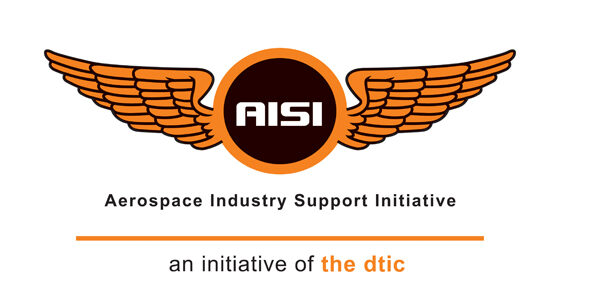defenceWeb
Guy Martin -6th Dec 2022

The Council for Scientific and Industrial Research (CSIR) plays a significant role in developing the South African aerospace and defence industry, and in addition to carrying out numerous research and development projects, is also host to the Aerospace Industry Support Initiative (AISI).
The Council’s contribution to aerospace and defence were highlighted during a recent CEO Roundtable event hosted at the CSIR International Convention Centre. CSIR Chief Executive Officer Dr Thulani Dlamini gave the media an overview of the organisation’s achievements and highlighted its strategy going forward.
“Despite the challenging economic environment we find ourselves in, the CSIR has had very positive results over the last year. We are very confident we are on track to achieve our objective to supporting a capable state and industrial development,” he said. “Investment in capability development puts us in good stead to ensure we remain relevant and impactful now and into the future…We remain in a strong financial position – the balance sheet remains strong; cash and liquidity are good, and this strong balance sheet makes us financially sustainable,” he said.
The CSIR achieved or exceeded more than 80% of its key performance indicators for the 2021/22 reporting year, with highlights being a 127% achievement in the number of new localised technologies; 114% achievement in the number of joint technology agreements implemented for industry; 132% achievement in the number of SMMEs supported; 129% achievement in the number of reports contributing to national policy development; and 215% achievement in the number of projects implemented to increase the capability of the state. Technology licence agreements – an area of slow growth in years past – grew by 300%.
In spite of the Covid-19 pandemic, the CSIR recorded positive growth over the last year in many areas, including its finances. Although only 25% of its funding comes from the State, the CSIR has seen good growth in private sector income (mostly contract research from the private sector), putting it in a strong financial position and giving it future sustainability.
Areas that need improvement are commercialisation of intellectual property and a new approach towards this will be announced in the future. The CSIR is engaging with partners and early engagements are looking promising – the Council emphasises it is open for business from governments and the private sector and is ready to form partnerships.
Dlamini explained the CSIR’s mandate is to accelerate socio-economic prosperity in South Africa by leading innovation, which plays a big role in economic development and creating a capable state. Everything the CSIR does must improve the lives of South Africans and as such, the Council’s nine focus areas were carefully chosen to cover advanced agriculture and food; chemicals; next generation healthcare; manufacturing; mining; defence and security; smart places; smart mobility; and next generation enterprises and institutions.
As aerospace and defence are one of the CSIR’s main pillars, it conducts many research and development programmes and offers facilities, such as its wind tunnels, to the industry. The wind tunnel business has been booming lately, with international clients booked for years in advance, and some wind tunnels are running double shifts to keep up.
The CSIR plays a significant role in the defence and aerospace industry through the hosting of the Aerospace Industry Support Initiative, a government initiative with the specific aim of improving the competitiveness of the local aeronautics, space, defence and marine advanced manufacturing sectors. This has assisted numerous local companies like Cape Aerospace Technologies (small gas turbine engines), Petrawell (filament winding), and Jonker Sailplanes (gliders), amongst many others.
A recent initiative was the AISI assisting Micromax with the localisation of a manufacturing capability for the Berretta 9 mm short gun frame. AISI also supported the development of a local capability at Etion Create for a video tracking solution (auto-tracker). Paramount Aerospace, too, received support during which CSIR photonics experts assisted with the qualification of aircraft parts manufactured using additive manufacturing. Two small to medium enterprises were supported to achieve ISO accreditation – Luvhone Engineering, a 100% black woman-owned SMME focusing on technology solutions for aerospace and security, satellite and terrestrial broadcast and information and communications technology, and Aero Metals, a 51% black woman-owned sheet metal manufacturer.
A few recent defence and security projects included developing a handheld fingerprint device to assist the Department of Correctional Services with offender recognition; and evaluating military vehicles on deployment to optimise the SANDF’s ground forces.
Dr Motodi Maserumule, Divisional Group Executive: Defence & Security at the CSIR, said that the Department of Defence (DoD) continues to invest in research and development through Armscor and the CSIR and in spite of the DoD’s funding challenges, “we are hopeful that this continues to be the case”, especially as it is important for South Africa to maintain strategic independence and strong sovereign research and development capabilities.
He added that the CSIR has vast experience in the radar and electronic warfare fields, and one of the Council’s big success stories is the development of the Quadome radar, which is being manufactured by Hensoldt South Africa – this is one of the biggest radar projects in South Africa in recent years.
Maserumule sees a lot of potential in the synthetic aperture radar (SAR) technology it is developing for either satellite or aircraft applications. This can be used for agriculture, mine safety, security etc. Numerous security and surveillance products have been successfully used in places like the Kruger National Park, where the Meerkat Wide Area Surveillance System has led to a dramatic decline in wildlife poaching. Such surveillance equipment is also well suited to farm security and border security, for example.
Read more: https://www.defenceweb.co.za/featured/aerospace-and-defence-remain-key-csir-focus-areas/https://www.defenceweb.co.za/featured/aerospace-and-defence-remain-key-csir-focus-areas/
